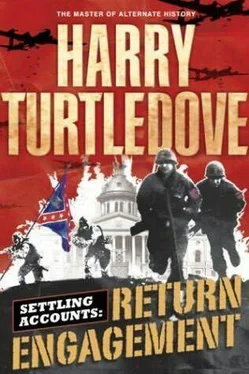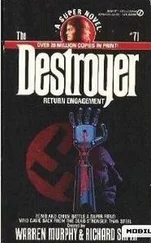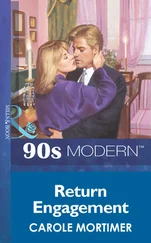Harry Turtledove - Return engagement
Здесь есть возможность читать онлайн «Harry Turtledove - Return engagement» весь текст электронной книги совершенно бесплатно (целиком полную версию без сокращений). В некоторых случаях можно слушать аудио, скачать через торрент в формате fb2 и присутствует краткое содержание. Жанр: История, на английском языке. Описание произведения, (предисловие) а так же отзывы посетителей доступны на портале библиотеки ЛибКат.
- Название:Return engagement
- Автор:
- Жанр:
- Год:неизвестен
- ISBN:нет данных
- Рейтинг книги:5 / 5. Голосов: 1
-
Избранное:Добавить в избранное
- Отзывы:
-
Ваша оценка:
- 100
- 1
- 2
- 3
- 4
- 5
Return engagement: краткое содержание, описание и аннотация
Предлагаем к чтению аннотацию, описание, краткое содержание или предисловие (зависит от того, что написал сам автор книги «Return engagement»). Если вы не нашли необходимую информацию о книге — напишите в комментариях, мы постараемся отыскать её.
Return engagement — читать онлайн бесплатно полную книгу (весь текст) целиком
Ниже представлен текст книги, разбитый по страницам. Система сохранения места последней прочитанной страницы, позволяет с удобством читать онлайн бесплатно книгу «Return engagement», без необходимости каждый раз заново искать на чём Вы остановились. Поставьте закладку, и сможете в любой момент перейти на страницу, на которой закончили чтение.
Интервал:
Закладка:
"Thank you very much, sir." Michael Pound smiled a crooked smile. "If it's all the same to you, though, I'll pass. I've seen what officers do. There's a lot more nonsense in it than there is when you've just got stripes on your sleeve. Gunner suits me fine. It's simple. It's clean. I know exactly what I have to do and how to do it-and I'm pretty damn good at it, too. My notion is, the Army needs a good gunner more than it needs an ordinary lieutenant, which is what I'd be."
"Oh, I wouldn't say that." Morrell's smile lifted only one corner of his mouth. "Whatever else you were, you'd be an extraordinary lieutenant. You talk back to me as a sergeant. If you got a gold bar on your shoulder, you'd probably talk back to the chief of the General Staff."
"Seeing how the war is going, wouldn't you say somebody ought to?" Pound sketched a salute and ambled off. He was blocky as a barrel himself-and solid as a barrel, too. And, when he went up against something he didn't like, he could also be as deadly as a barrel.
Morrell looked east. Then he looked west. Then he muttered something uncomplimentary about Jake Featherston's personal habits, something about which he was in no position to have firsthand knowledge. Sergeant Pound was altogether too likely to be right. The thrust up to Lake Erie was starting to hurt the USA. Morrell wondered what the exact problem was. Could they ship enough fuel or enough barrels on the rail lines north of the Great Lakes, but not both at once? Something like that, he supposed. Logistics had never been his favorite subject. No good officer could afford to ignore it, but he preferred fighting to brooding about rolling stock.
Of course, if not for rolling stock he'd still have had his barrels with him. They would have broken down one after another if they'd had to get to eastern West Virginia under their own power. Breakdowns kept almost as many of them out of action as enemy fire did. Morrell wished it were otherwise, but it wasn't. The weight of armor they carried stressed engines and suspensions to the point of no return, or sometimes past it.
Half a dozen barrels still in Caldwell had their engine decking off. Soldiers were attacking them with wrenches and pliers. Some, maybe even most, of them hadn't broken down. A barrel whose crew kept it in good running trim didn't fail as often as one whose crew neglected it.
Far off in the distance, artillery rumbled. Morrell cursed under his breath. He should have been up there punching, not stalled in this jerkwater town. And how could he ever hope to land any punches if they kept siphoning away his strength? He couldn't, but they'd blame him because he didn't.
The Constitution said U.S. soldiers weren't supposed to quarter themselves on civilians. Like most rules, that one sometimes got ignored when bullets started flying. Morrell didn't ignore it, though. He was perfectly happy in a tent or a sleeping bag or just rolled in a blanket-he liked the outdoors. That was a concept General Staff officers back in Philadelphia had trouble grasping.
He was glad he had a tent when it started to pour about eight that night. Rain bucketed down out of the sky. It wasn't a warm summer rain, either: not the kind you could go out in and enjoy. The nasty weather said the seasons were changing. It would turn everything but paved roads into soup, too. Morrell muttered to himself. Enough mud could bog down barrels. That would slow things here.
He did some more muttering a moment later. If it also rained like this in Virginia, it wouldn't do the building U.S. offensive any good. That wasn't his campaign, but he worried about it. He worried about it all the more because it wasn't his campaign. But all he could do was worry. The weather did as it pleased, not as he pleased.
He'd just stretched out on his cot when Confederate bombers came over Caldwell. The drumming rain drowned out the drone of their motors. The first he knew that they were around was a series of rending crashes off in the woods east of the little town. Frightened shouts came from nearby houses. Morrell almost laughed. Civilians got a lot more excited about bombing than soldiers did.
With those clouds overhead, the Confederates were bombing blind. Morrell didn't worry that they would actually hit Caldwell… until the bomb impacts started walking west from those first blasts. The lead bombers had missed their targets by a lot. But the ones behind them, trying to bomb from the same point as they had, released their bombs too soon, an error that grew as it went through the formation.
That sort of thing happened all the time. Here, though, it was bringing the bombs back toward where they should have fallen in the first place. Morrell had taken off his boots to get comfortable. He put them on again in a tearing hurry, not bothering to tie them. Then he bolted from his tent and ran for the closest shelter trench.
He splashed and squelched getting down into it. It filled rapidly with cursing crewmen from his remaining barrels. However much they cursed, they kept their heads down. A chunk of bomb could do as neat a job as a headsman's axe-but a messy one would leave you just as dead.
"Here they come," somebody said as bombs started falling inside Caldwell. The ground shook. Fragments hissed and screeched not nearly far enough overhead. As Morrell bent to tie those boots, he hoped the civilians had had the brains to go down into their basements.
One crash was especially loud, and followed by a flash of light. "Fuckin' lucky bastards," a soldier said. "If they didn't just blow a barrel to hell and gone, I'm a monkey's uncle." Ammunition cooking off inside the stricken machine proved him right.
Another, different-sounding, crash probably meant a bomb had come down on a house. Going to the basement wasn't likely to save the poor bastards who'd lived there. Morrell sighed a wet sigh. Nothing to be done about it-and it wasn't as if U.S. bombers weren't visiting the same kind of hell on Confederate civilians.
"Pay those stinking sons of bitches back for getting me all wet and muddy," a barrel man said. Civilian casualties worried him even less than Morrell. His own discomfort was another story.
The bombs stopped falling. Morrell stood up straight and looked out of the trench. The barrel that had taken a direct hit was still burning in spite of the rain. By that yellow, flickering light, Morrell saw that two or three houses had fallen in on themselves. They were trying to burn, too, but weren't having an easy time of it in the downpour.
"Come on," he said. "Let's see what we can do for the locals."
A civilian lay in the middle of one of the streets, suddenly and gruesomely dead. What had he been doing out there? Watching the bombs come down? Did he think it was sport? No one would ever know now.
Other people came staggering out of houses. Some of them were wounded. Some were simply in shock, and crying out their terror to whoever would listen, or maybe to the world at large. "My baby! My baby!" a woman shrieked. She was holding the baby, which was also shrieking.
A corpsman took the baby from her. After looking it over-carefully, because fragments could produce tiny but deadly wounds-he spoke in tones of purest New York City: "Lady, ain't nuttin' wrong wid dis kid but a wet diaper."
"But the poor thing is frightened half to death!" the woman said.
What the corpsman said after that was memorable, but had very little to do with medicine. The woman squawked indignantly. Irving Morrell filed away some of the choicer-the corpsman would have said chercer-phrases. When he found a moment, he'd aim them at Philadelphia.
When Scipio looked in his pay envelope, he thought the bookkeeper at the Huntsman's Lodge had made a mistake. That had happened before, two or three times. As far as he could tell, the bookkeeper always erred in the restaurant's favor. He took the envelope to Jerry Dover. "I hates to bother you, suh, but I's ten dollars light."
Читать дальшеИнтервал:
Закладка:
Похожие книги на «Return engagement»
Представляем Вашему вниманию похожие книги на «Return engagement» списком для выбора. Мы отобрали схожую по названию и смыслу литературу в надежде предоставить читателям больше вариантов отыскать новые, интересные, ещё непрочитанные произведения.
Обсуждение, отзывы о книге «Return engagement» и просто собственные мнения читателей. Оставьте ваши комментарии, напишите, что Вы думаете о произведении, его смысле или главных героях. Укажите что конкретно понравилось, а что нет, и почему Вы так считаете.












